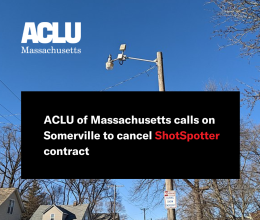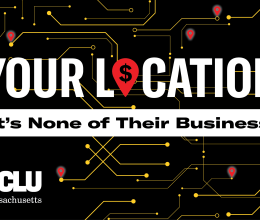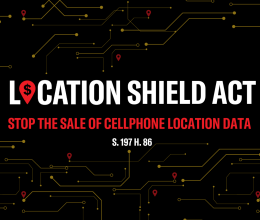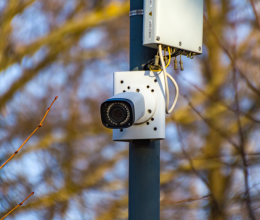
The ACLU of Massachusetts applauds a proposed face surveillance ban in Somerville. Ward 3 City Councilor Ben Ewen-Campen last night introduced an ordinance that would prohibit government use of technology that can screen, identify, and track people from a distance without their awareness or consent.
According to the ACLU, the measure is necessary because this type of surveillance technology is unregulated, unreliable, and in its most dangerous forms, poses a profound threat to racial and gender justice, personal privacy, political and religious expression, and freedom of association.
“Face surveillance may conjure images from dystopian fiction, but this technology is already being deployed right here in Massachusetts,” said Kade Crockford, Director of the ACLU of Massachusetts’ Technology for Liberty program. “Face surveillance poses unique civil rights and civil liberties concerns. A person can choose to leave their cellphone at home when they go to a political protest, doctor’s office, or place of worship. But you cannot leave your face at home. Massachusetts must immediately pump the brakes on technology that makes it easy and cheap for the government to track our friends, family, and neighbors by their faces, en masse and in secret. The authoritarian government in China is making quick use of this troubling technology to control and oppress religious minorities and political dissidents. By proposing this ban, Councilor Ewen-Campen is putting Somerville on different path, and we should all be grateful for his leadership.”
“I don't think many Somerville residents would support a law requiring every resident to wear a visible identification badge on their chest every time they leave the house - but that's exactly what facial recognition technology is,” said Councilor Ewen-Campen. “What's more, given what we know about the troubling racial biases in facial recognition systems, and their chilling effect on free speech and community activism, I think it's clear that Somerville needs to lead on this important issue by banning the use of facial recognition by our local government.”
World-leading artificial intelligence researchers and scientists recently sounded the alarm about law enforcement’s use of facial recognition because of the technology’s racial and gender bias. In January, two MIT researchers published a peer-reviewed study showing that Amazon’s face surveillance product had more trouble identifying the gender of female and darker-skinned faces in photos, mistaking women for men 19 percent of the time and misidentifying darker-skinned women for men 31 percent of the time.
Somerville now joins San Francisco and Oakland, California, where city officials are also considering face surveillance bans. An ACLU-backed bill currently before Massachusetts legislators on Beacon Hill would establish a statewide moratorium on unregulated government use of face surveillance and other biometric screening technologies until the legislature imposes checks and balances to protect the public’s interest.






